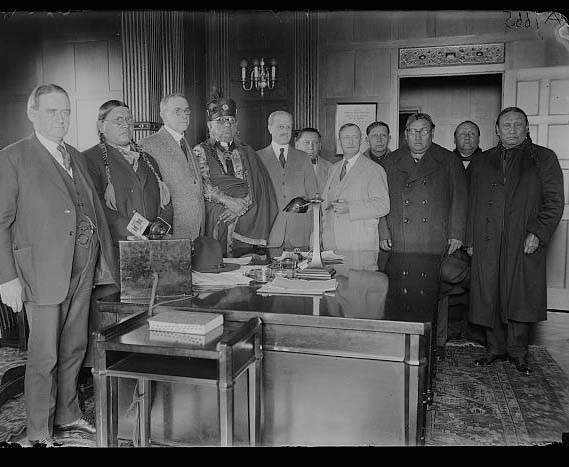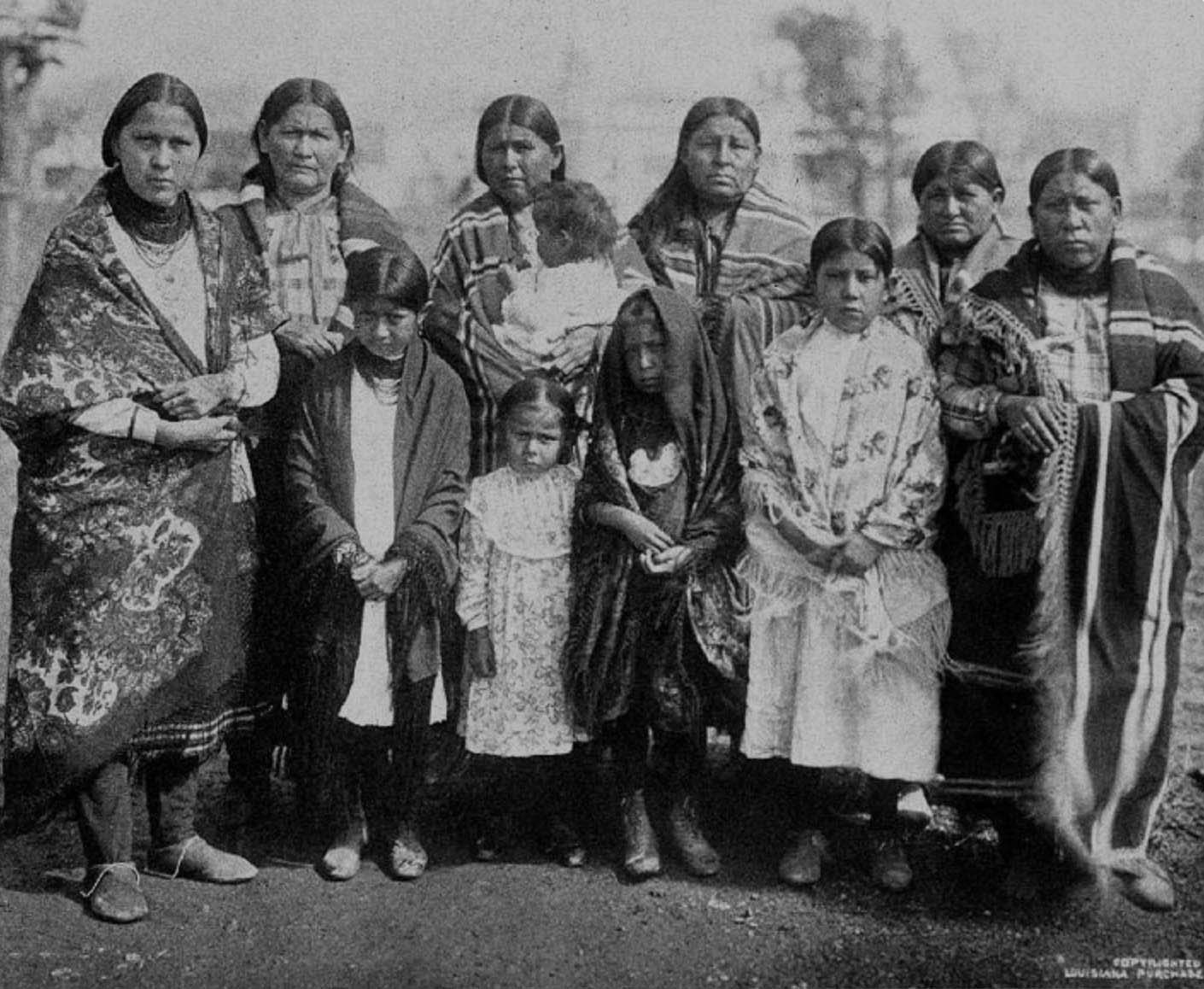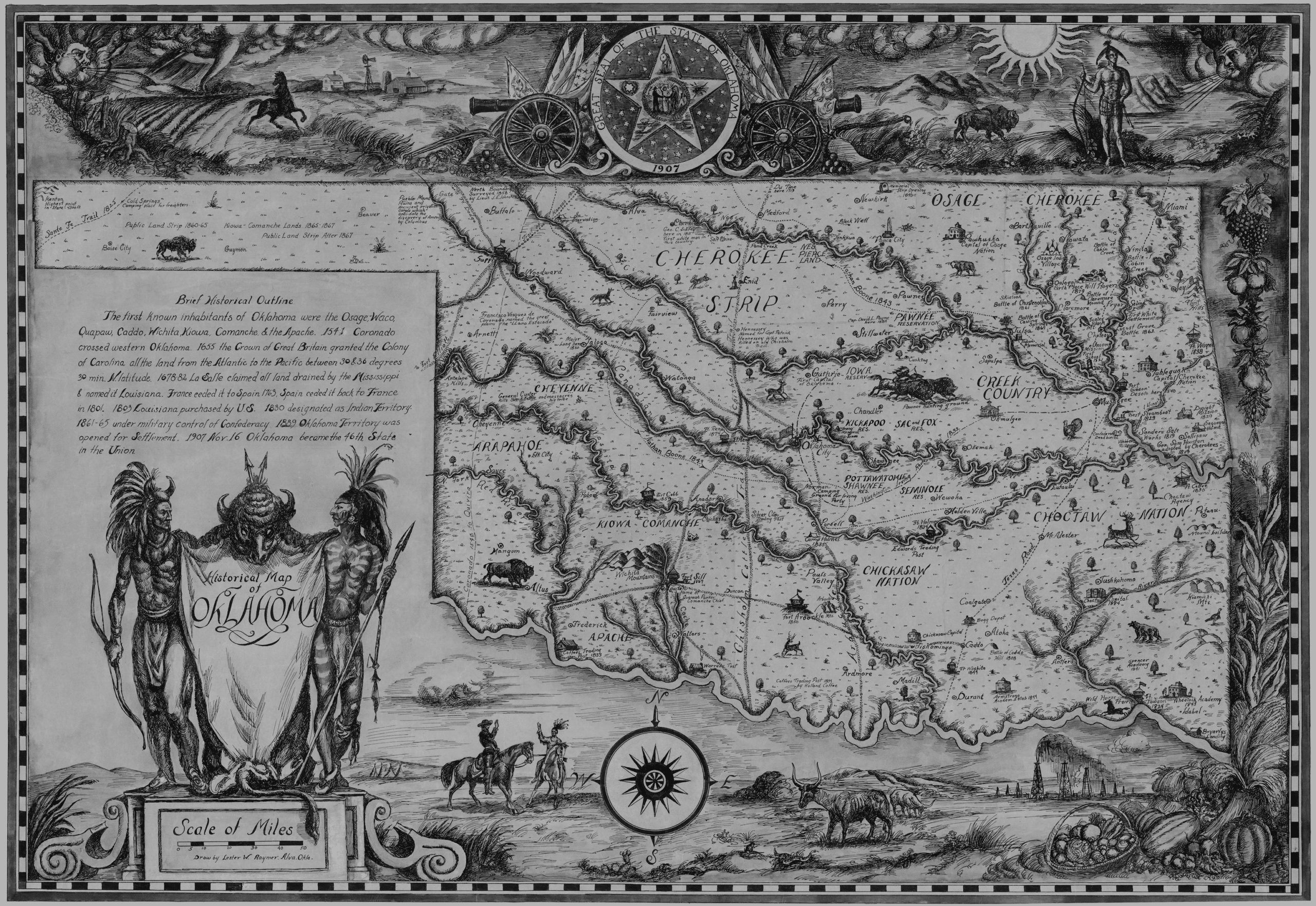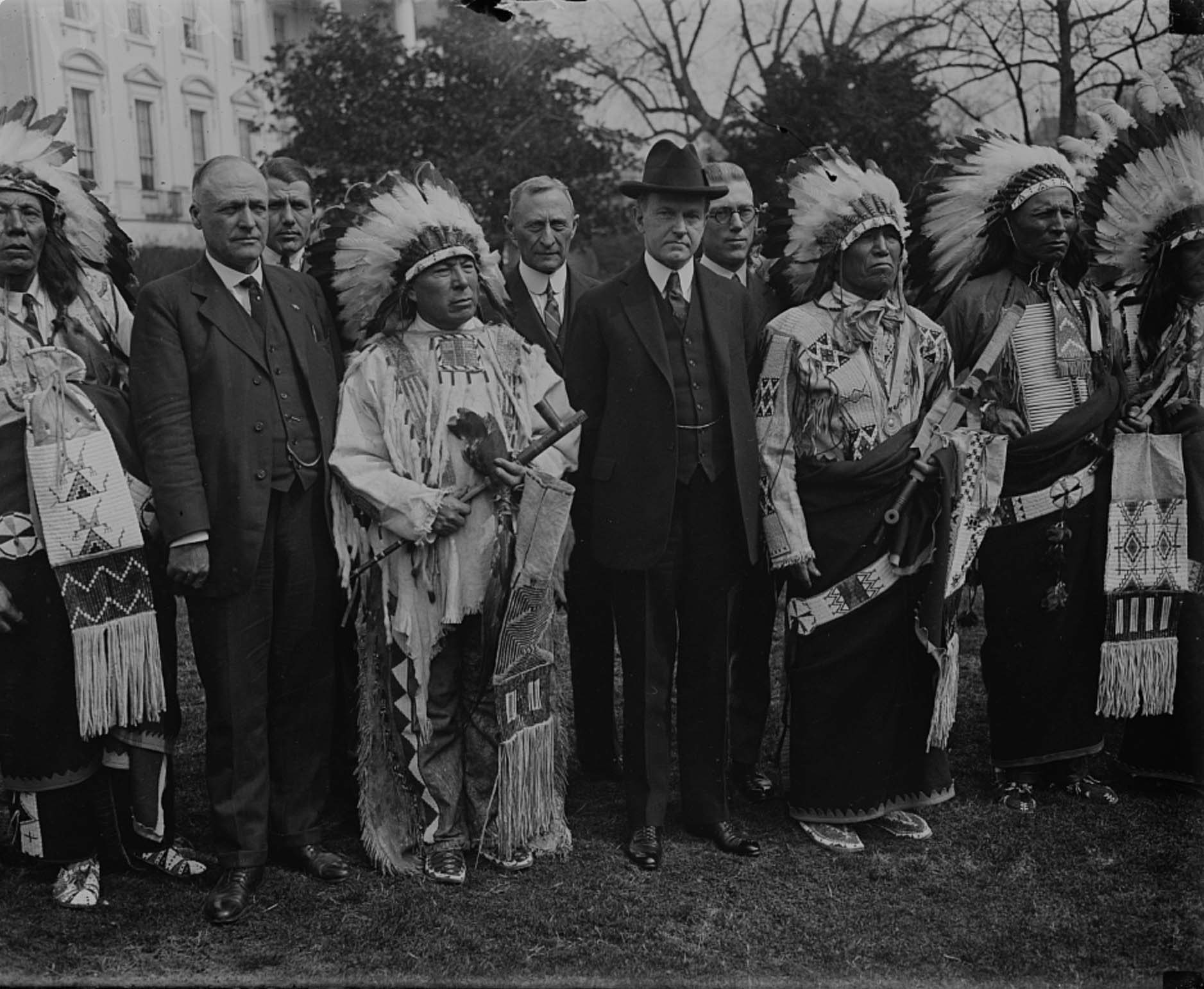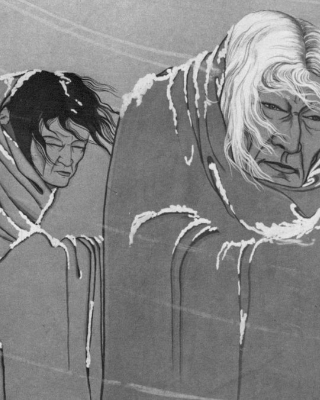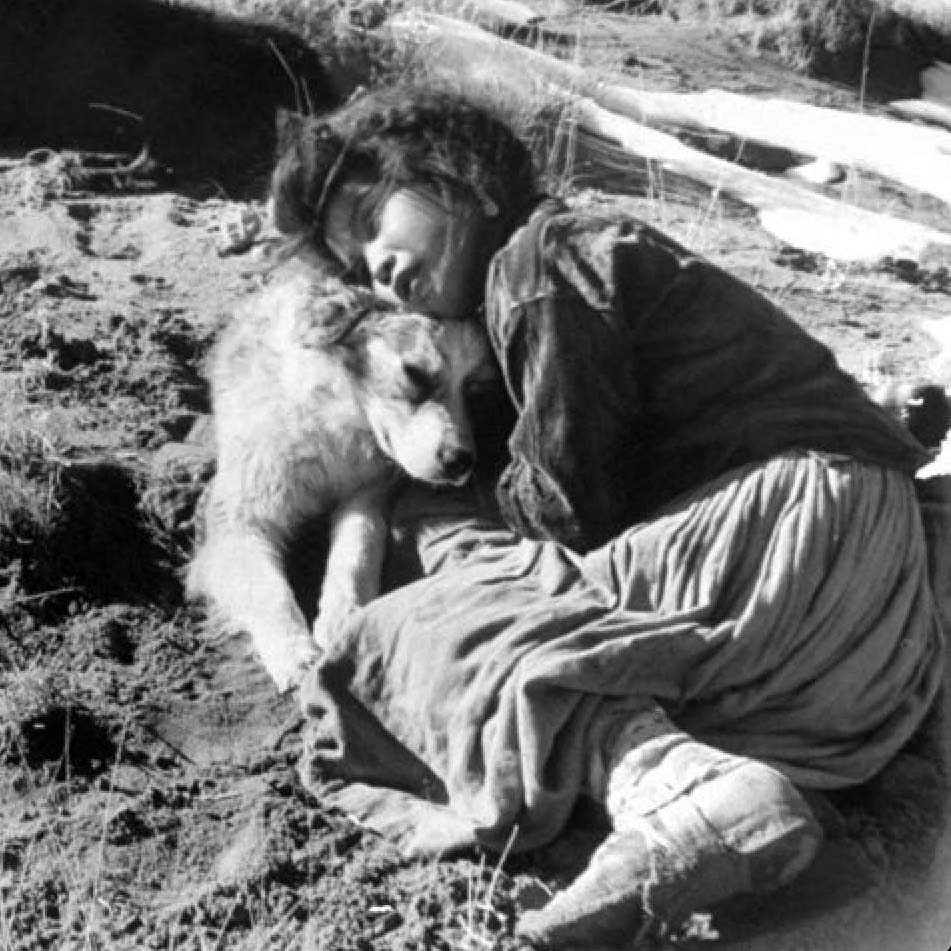1887-1928
As the United States expanded westward, the flood of settlers and introduction of railways caused political leaders to believe that Indian reservations were too large and disproportionate to the needs of tribal nations. Popular opinion said that tribal nations should be “civilized” and their communal existence terminated through promotion of individual property rights. Toward that end, Congress passed the General Allotment Act of 1887 to divide reservation lands into 40-160 acre allotments for heads of family and individuals. Because Indigenous peoples were deemed “incompetent,” the federal government held these allotments in trust for 25 years until the Natives became more “civilized” through assimilation. “Surplus” reservation land was then sold to non-Indians. In 1906, Congress amended the 1887 Act with the Forced Fee Patenting Act (Burke Act) which enabled the Secretary of the Interior to judge an individual allottee competent, granting them U.S. citizenship and full ownership of the allotment. which opened the land for taxation. From 1887 to 1934, Indian people lost two-thirds of their post-treaty landholdings, leaving tribal nations with 48 million acres, much of it of little economic value.


